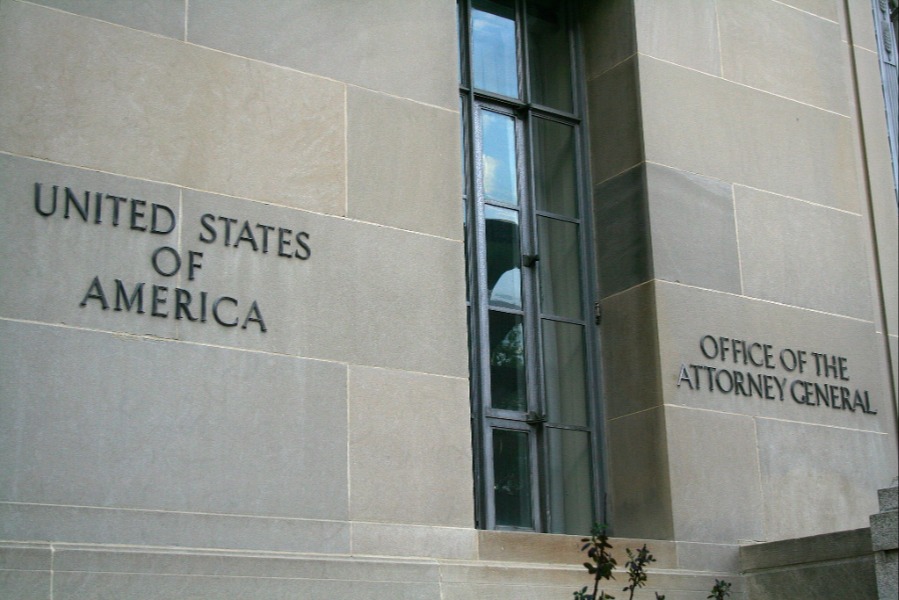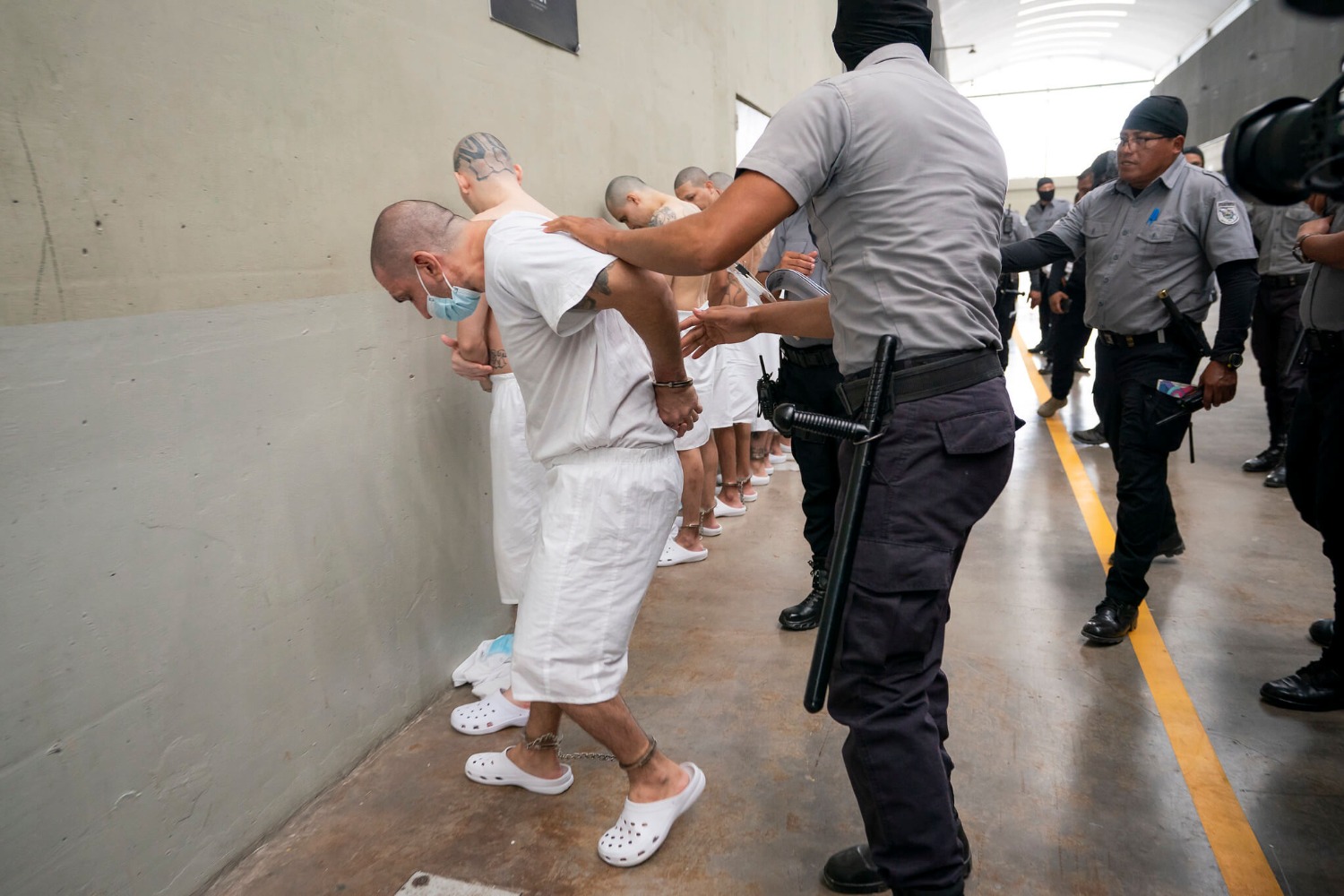The Situation: A Memo for the New Attorney General
Earnest and serious advice for a woman who has a hard job.

Published by The Lawfare Institute
in Cooperation With

The Situation on Monday talked about the rebellion going on at the FBI.
Today I have a memo for Attorney General Pam Bondi—the woman who, as of last night, is going to have to manage things.
To: Attorney General Pam Bondi
From: Benjamin Wittes
Subject: Friendly advice
Let me begin by clearing what you might reasonably regard as some underbrush with respect to my having the temerity to offer you advice:
- No, I wouldn’t have voted to confirm you had I been a senator.
- And yes, I do think you’re cruising for a bruising in trying to run the United States Department of Justice—an institution devoted to the rule of law—under the incumbent president. This is, I suspect, all going to end badly for you. But whatever, you didn’t ask my opinion about whether or not you should take this job.
As Donald Rumsfeld might say, you defend the rule of law with the attorney general you have, not the attorney general you wished you had. The president nominated you, and you accepted the nomination. The Senate has now confirmed your nomination, and you have been sworn in. So you are the only attorney general we’ve got.
And so I have some earnest and good-faith advice for you, as someone who has watched the Justice Department up close for about 30 years. I have watched people do your job well, and I have watched people do your job badly. And one thing that I have learned is that I am not especially good at predicting how people will do in your role. I did not expect John Ashcroft to be an honorable and constructive attorney general. And I did not expect Bill Barr to be a catastrophic one with a very-partially redemptive red line at the end. I did not know how much I would come to admire Janet Reno as I watched her successors. So I’m open to the possibility that I may be wrong about you—indeed, I really hope to be so.
Toward which possibility I offer the following advice, without a trace of irony or snark, and with the genuine hope that it might be helpful. Here are six key pieces of advice that can help guide you if you choose to take them seriously.
First, you cannot let the president’s personal lawyers manage Justice Department personnel matters in which their client has individual interests. I noticed that the firing of department staff who had worked on the special counsel’s investigation was handled by the acting attorney general, not the acting deputy attorney general—who represented the president in litigation against the special counsel’s office. On the other hand, the direction to fire a raft of prosecutors who had worked on the Jan. 6 prosecutions came directly from the latter, Emil Bove, as did the demands for information from the FBI on agents who had worked on the Jan. 6 investigations. Appreciating that Mr. Bove may not have a formal conflict of interest in firing staff who worked on matters adjacent to the prosecution of his client, I would submit that neither he nor Todd Blanche, the president’s nominee to be your deputy attorney general—a man who also represented President Trump in the same criminal matters—is an appropriate person to handle the discipline of career officials who worked on related criminal matters. I would humbly submit that any such decisions should be taken by you personally, as the Senate-confirmed leader of the department they impact.
Second, make peace with the Justice Department workforce. I assume you were not consulted, and are thus not to blame, for the reign of terror that the administration has been waging at the Justice Department. It is, however, on you to put a stop to it. The career workforce at the Justice Department is not your enemy. The men and women who make it up are the Justice Department. The impact of firing people because they worked on cases the incumbent administration has come to disfavor will sound down through Justice Department lore across administrations and decades. If you tolerate the firing of people who worked for Jack Smith or on Jan. 6 prosecutions, why would any sane civil litigator, say, defend anti-DEI policies of the current administration to which the next administration might be inclined to object? The Justice Department under your leadership is bound to take some deeply controversial litigation positions and bring some criminal cases that some future administration may consider a “weaponization” of the federal government’s authorities. Do you really want the career lawyers having to worry about their professional futures when they energetically defend your positions? Our system allows each administration to take its own positions by protecting the career officials from political retribution when the political winds change. That is at risk of collapsing, and you can do something about it.
Third, make peace with the FBI. You will be surprised how much you depend on the FBI. Retaliating against individual FBI agents is a surefire way to make your tenure nasty, brutish, and ineffective. This is not because the FBI is a rogue deep-state agency. It is because the power to prosecute is actually downstream of the power to investigate—at least most of the time. Prosecutors without a first-rate investigative apparatus are a sorry bunch, even if they went to great law schools. What is happening now at the FBI risks a hollowing out of the department’s investigative capacity. Who is going to take on major investigations that may become controversial if the attorney general won’t protect them from dismissal for doing their jobs? It’s up to you to calm the anxiety and stand for the proposition that FBI agents who engaged in no individual misconduct will not be disciplined for following leads flowing from legitimate criminal predicates, executing court authorized warrants, making arrests, and testifying at trials. That’s true of management, and it’s emphatically true of street agents as well.
Fourth, don’t abandon public corruption prosecution. Less noticed publicly than the personnel actions has been the administration’s apparent retreat from public corruption prosecutions. The department is apparently considering dropping the case against New York Mayor Eric Adams, for example. Press reports have also suggested that an investigation in Tennessee against a Republican member of Congress may be dropped for political reasons. I understand the temptation to give political cover to the burying of the Jan. 6 cases and the cases against Trump by burying other political corruption cases too. But it’s a really bad idea. And it doesn’t make it a better idea if the beneficiaries are sometimes corrupt Democrats. There is no surer way to discredit the Justice Department than to back off merited cases because doing so creates safe space for the Mar-a-Lago clique.
Fifth, similarly, do not let the Justice Department become a vehicle for impunity for right-wing violence. I know it is fashionable in MAGA political circles to pretend this country doesn’t currently have a problem with far-right violence. And I don’t want to get into a dispute about whether there is a remotely comparable problem with left-wing violence. But there is, at a minimum, no current problem with the president pardoning large numbers of violent felons associated with the political left. The Justice Department cannot be in the position, even if the president is, of taking the view that far-right violence is tolerable or turning away from it when it happens because it helps him or is done by his supporters. It cannot create an environment, as there is real risk now of creating, in which people think the law will go easy on them if they commit violent crimes in a cause the president approves of or that benefits him. If you want to make a show of even-handedness, I understand. Feel free to say the word “Antifa” as often as you please. But don’t kid yourself. Your department is going to have a problem with violence by the president’s own political supporters with which you are going to need to reckon. You can’t stop him from pardoning them if he continues to do so. You can prevent the Justice Department from becoming party to the impunity he is creating. And you need to do that.
Finally, sixth, that whole thing about canceling the Justice Department’s honors program was a mistake. Reverse it. The department needs fresh infusions of talent. I understand that fancy law schools smack of liberal elites. Okay, but you’re the attorney general, not on the campaign hustings, and you have a department to run. And the department needs new blood every year, because every year, people retire, bright young things leave for law firms and academia, and people get promoted. Cutting off the department’s access to the talent pool is just dumb. Every single person who was part of the incoming class of honors hires was someone who was willing to work for the Trump administration. Some of them took a lot of crap from friends and colleagues for that willingness. You need to make sure that whatever the rhetoric, the department continues to attract first-rate talent.
I am fully aware that this advice is inconvenient—as it cuts against the direction of administration policy prior to your confirmation—and that advice from me is probably unwelcome. The advice is, however, sincere. You’re the only attorney general we have, and you alone can arrest a drift in Justice Department internal actions that is veering toward the truly catastrophic. I wish you all the best.




